Podcast: Play in new window | Download
Subscribe: Apple Podcasts | RSS
Have you tried the keto diet and struggled with getting your ketones high enough? Did you feel terrible eating a lot of fats, or tired and sluggish? Did you suffer from hypoglycemia, while trying to fix your high blood sugar problems? Or just feel like your body needed more vegetables? These are all common issues that can be avoided by understanding nutrigenomics and how your body responds to different foods. Grab your Nutrition Genome (or another genetic SNP test) results and follow along as Sarah Morgan takes you through the top 11 SNPs you’ll want to know about for personalizing the keto diet based on your genes.
Pairing Nutrition Genome testing with functional lab bio-marker testing and tracking it all within Heads Up Health, can help you monitor your health and see how your diet is working for you or against you. It’s true, your genes don’t change, but don’t assume there’s nothing you can do to avoid disease. How you live your life and what you eat is directly responsible for switching your genes for a disease on or off.
Dave Korsunsky, Founder of Heads Up Health interviews Sarah Morgan, aka “The Gene Queen”, on the top 11 genetic SNP’s that affect how you may react to a ketogenic diet, and what to do if you do have those SNP’s.
This episode is packed full of useful information, especially for those of you who have not achieved the results you wanted with a ketogenic diet. It may just need a bit more personalization for you, which is where genome testing for nutrition comes in.
Make sure to check out our podcast with Alex Swanson of Nutrition Genome on how to obtain your own test kit and what information you’ll find within the results.
Sarah Morgan, aka “The Gene Queen” has worked in the field of genetics for the last 13 years, connecting the dots on how your genes interact with your diet and lifestyle. She has a Bachelor’s degree in Biology and Chemistry from the University of Wisconsin – Eau Claire. She holds a Master of Science in Functional Nutrition from the University of Bridgeport. Currently, she runs several companies after taking a step back from her clinical practice. Her new company Even Health (coming soon) creates supplements to help replenish the nutritional cost of the medications you may have to take, such as birth control pills, and even statins. She has also written a children’s book Buddies in My Belly to help kids understand the importance of a healthy gut microbiome.
This podcast is brought to you by Heads Up Health, a web app designed to help you centrally track all of your vital health data. Instantly synchronize your medical records, connect your favorite health devices and apps and use your data to optimize your health!
Click on the button below to start your free 30-day trial. Or, read on for more information about our latest podcast episode!
[maxbutton id=”5″ url=”https://headsuphealth.com/” ]
In this podcast you’ll learn:
- When the Human Genome Project was completed in 2003 we thought we’d find at least 50,000 genes but we found only 20,000-25,000 [2:40]
- That the microbiome has genes also and can impact our human genome expression [3:10]
- SNP’s (single nucleotide polymorphisms) sometimes don’t do anything, but other times they affect things like detox, how we handle inflammation and what types of diets we tolerate best. These are not inborn errors that children are sometimes born with [4:30]
- Your genes and genome are always going to be the same, but your genetic expression is changing all the time based on the inputs you give your body – diet, stress, water, sleep etc. [6:25]
- How tracking your data through HUH you can figure out what inputs (diet, stress, sleep) are connected to health for you [8:20]
- #1 – PEMT gene (located in the methylation section) allows you to make choline which is crucial for liver function. The liver converts your fats to ketones, so this is important for a ketogenic diet [12:40]
- Normal- usual presentation, heterozygous – one copy of the gene, homozygous – two copies of the gene [14:50]
- Choline is really important for gallbladder function which helps break down fats for our body to use them [15:20 ]
- # 2 – FADS-2 (located in the digestion section) [20:35]
- Has to do with metabolic or neurologic issues on a keto diet. These are omega 3 status indicators.
- This gene has to do with taking shorter chain omega 3 fatty acids (alpha-linolenic acid) like flaxseed and walnuts and converting it to the longer chain fatty acids like EPA and DHA which are found in higher amounts in fish.
- You can check your blood levels of EPA and DHA levels and cross-reference how these genes are working for you in your body [23:15]
- # 3 – FUT2 (located in the digestion section) How well you feed your microbiome [23:35]
- The microbiome plays a part in how well you absorb your fats based on the type of bacteria living in your small intestines.
- The more dysbiosis (bad bugs) bacteria you have living in your gut, you can have more of an inflammatory response to an increase in fats.
- If you have heterozygous or homozygous, you should emphasize your prebiotics (food for gut bugs) because if you have changes in this gene you’re not actually feeding your microbiome as well and can have more issues with lower levels of bifidobacteria (anti-inflammatory bacteria that also makes B vitamins like B12 and folate).
- Needs a good variety of diverse plant fibers in the diet. 25 different plant species per week (this can be hard in a traditional keto diet -carnivore would not be a good option for someone with this gene).
- CAUTION- very extreme restricted diets can be detrimental so use caution if you don’t have all of the information on how it will affect you before beginning a very restricted diet if you don’t know what you’re doing. Test, don’t guess.
- #4 – ACAT (located in the digestion section) How your body converts protein and fat to cellular energy [30:04]
- We make our body weight in ATP (cellular energy) every day! We want to make sure someone has the ability to get good energy from protein and fat and has to do with cholesterol balance in the cell if eating a high fat/protein diet.
- Example of symptoms:
- Someone who is homozygous may go on a higher fat diet and consume more protein and have their cholesterol go up.
- Eating more fat and you feel exhausted. You never feel good, because it’s lowering your ability to make energy due to your lack of ability to properly use fat and protein for fuel
- Watch your cholesterol and liver enzymes when doing a high-fat diet as they can go up if your liver can’t handle all the fat processing (see PEMT gene info).
- #5 -ADIPOQ The Red Meat Gene – Adiponectin (located in the digestion section) [33:50]
- This is a hormone released in the intestinal tract when we eat foods and it has to do with how much insulin is secreted- affecting blood sugar, type 2 diabetes, etc. These are people that are predisposed to metabolic disease.
- Things that help this function better
- Exercise
- Intermittent Fasting
- Omega 3’s to increase adiponectin secretion
- Turmeric
- Berries
- Ginger
- People that are low secreters are at a higher risk for insulin resistance, heart disease, and colon cancer – especially important to know before doing a high meat keto diet with a lot of red meats
- Homozygous- make sure you exercise and check body composition. Insulin resistance starts in the muscle -so get your muscles moving and lift some heavy stuff!
- #6 – SLC22A5 Fat Taxi Cab Gene – (located in the digestion section) [40:20]
- Picks up our fats and shuttles them to mitochondria to be burned as an energy source. Fat goes through the digestive tract and is absorbed across the gut barrier and then L-carnitine shuttles to the mitochondria.
- Low levels of L-carnitine could compromise your ability to shuttle fat to your mitochondria and contribute to lowered energy in your mitochondria which can have neurological implications.
- You can consume L-carnitine in red meat, but your body also makes it.
- Vitamin C is very helpful and making sure you’re methylating well as L-carnitine is a byproduct of methylation.
- #7 PPAR Alpha – Peroxisome Proliferator-Activated Receptor Alpha (located in the digestion section) [42:20]
- This is the “ketone gene” – especially if homozygous this can make it difficult to get into ketosis.
- This plays a role in fatty acid metabolism – how our fats are actually utilized in ketosis.
- Symptoms:
- Changes in cholesterol panel like triglycerides, HDL, LDL in people that are poor responders.
- May not feel as well when trying to go into ketosis and feel poorly on a keto diet.
- They could potentially have ketogenic hypoglycemia because their ketone production is low and they’re not bringing in enough carbs to keep blood sugar normal – they essentially have no fuel to run on.
- Needs exogenous ketones to stay keto since your body can’t make them well.
- If you’re homozygous and taking exogenous ketones, you need to really watch your cholesterol well.
- #8 – ACSL1– How well you metabolize saturated fats from animals – bacon, fat bombs from dairy, etc. (located in the digestion section) [44:25]
- These people will have higher issues with higher fasting glucose and insulin resistance. If homozygous or even heterozygous -focus from getting your fats from plant sources rather than animal sources. More Mediterranean keto diet. Coconut is okay.
- #9 – APOA2– Eat fat, get fat gene (located in the digestion section) [44:25]
- An enzyme that regulates appetite. People who eat more fat tend to be more hungry and tend to consume more calories in a day. You can mitigate this through movement. Don’t have a desk job where you sit 8 hours a day, especially if you eat a lot of fat.
- #10 FTO – The Hangry Gene (newly added to report in last 6 months or so -located in the digestion section) [47:00]
- Has to do with the hunger hormone ghrelin.
- People who have this, especially homozygous, are the people that are just hungry all the time.
- Balance blood sugars. Don’t consume high glycemic foods (you’re already doing that if on keto).
- Pay attention to hunger signals as well even if not eating high glycemic foods regularly.
- # 11 TCF7L2 – The carb Gene (located in the digestion section) [49:40]
- Incretin hormone that has to do with insulin sensitivity.
- The biggest indicator of type 2 diabetes, across the board in terms of studies.
- If heterozygous – be careful with your carbs, homozygous be REALLY careful with your carbs.
- Symptoms:
- weight gain
- dysregulated insulin
- carb cravings
- Symptoms:
- Wild type can have more metabolic flexibility of being able to use carbohydrates and not have negative consequences. Beta cells in pancreas very sensitive for these people. Ancestrally they probably ate more carbs and are more efficient at it.
References
EVEN Health Supplement Company
Buddies In My Belly
Gene Queen
Nutrition Genome
Our Partners:
Learn more about LEVL, a clinical-grade ketone breath meter, which measures your level of fat-burning and ketosis through a simple breath. Find out more at HeadsUpHealth.com/LEVL.
You can learn more about the Oura ring, a state of the art ring that can track sleep cycle analysis, activity, and recovery at HeadsUpHealth.com/Oura.
Learn more about Keto-Mojo, a highly accurate and affordable device for testing blood sugar and blood ketones. Check it out at HeadsUpHealth.com/Ketomojo.
All of these amazing products are integrated with Heads Up Health.
They all allow you to quantify your health in novel and powerful ways.
Thank you to our partners!
About Heads Up Health
Heads Up Health is a website designed to empower individuals who want to take a self-directed approach to managing their health. Instantly centralize your medical records, connect your favorite devices and apps (e.g., Oura, MyFitnessPal, Keto-Mojo, FitBit, Apple Health, MyMacros+, Withings and many more) and use your data to optimize your health.
Click on the button below to start your free 30-day trial now!
[maxbutton id=”4″ url=”https://headsuphealth.com/” ]
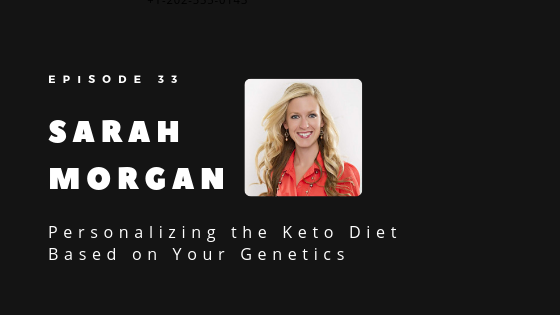
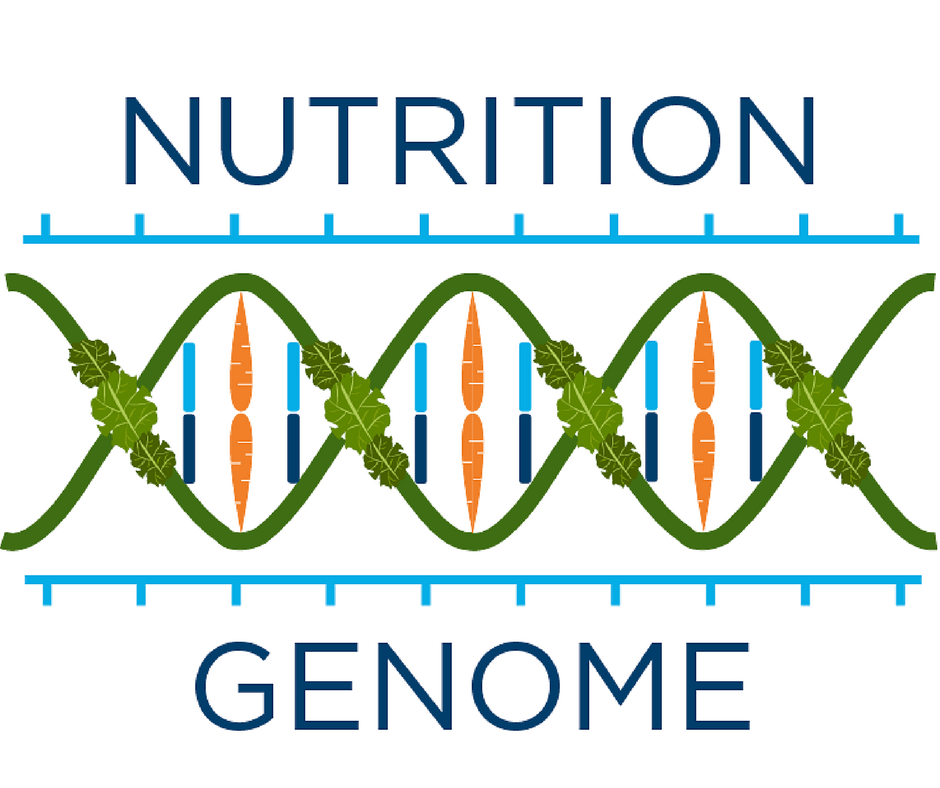






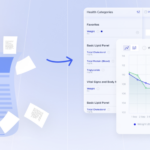
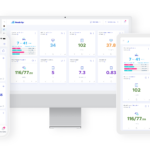


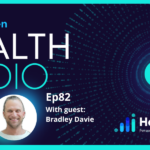
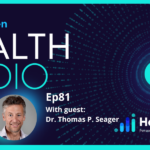
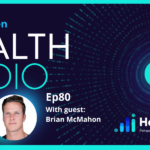
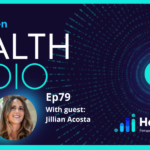
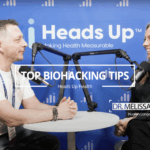
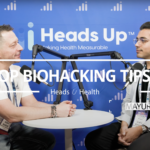
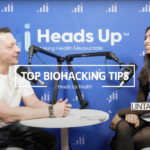

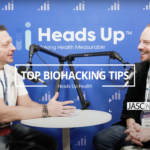
Would love more info